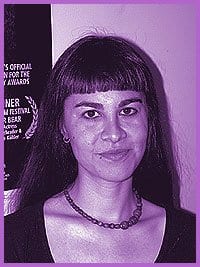Recently, my mother asked after my ex-girlfriend, while my current partner, my brother, my father and I were savouring a meal together. I am accustomed to the topic being brought up, as my ex and I were together for eight years and we continue to maintain amicable ties. I extrapolated on the sundry goings-on in my ex’s life, including the fact that she recently started dating my best friend of 22 years.
After I finished explaining this last bit of news, my mother exclaimed, “I can’t believe it!” My brother looked at me with surprise, and asked, “Are you all right with this?” My father continued eating, and murmured into his food, “That’s called recycling.”
The remainder of the meal was spent discussing this new relationship with my family who needed to talk about it. I had not anticipated that we would have this discussion. This situation, which in heterosexual communities is verboten, is a common occurrence in lesbian communities. For heterosexuals, such unions between ex-partners and friends are largely viewed as incestuous. The taboo is built into heterosexual communities in a way that it is not built into homosexual communities. It is perceived as a social gaffe that almost always garners disapproval. The heterosexual people I have spoken with overwhelmingly consider unions between former exes and friends or relatives unethical.
In contrast, such relationships occur in homosexual communities on a regular basis. Although it is more commonplace, it is not necessarily an accepted practice. If anything, homosexual people’s attitudes towards crossing those lines are similar to those of heterosexual communities. Many people in the queer community prefer to avoid this kind of relationship interplay, at least in theory.
But why does it continue to be so common?
One of the perennial complaints from both lesbian and gay people is that there are a limited number of fish in the sea. The fact is that it is more of a pond than a sea, making for a smaller number of fish. When single queer people talk about their hopes of meeting a spouse, one of their perceived obstacles is the often seemingly molecular size of the community in which to find a partner. Once one delves into the queer community in any given city, a veritable flowchart between people surfaces, as past and present interrelations are laid bare.
No doubt, the lesbian community is small. Whether in London, Paris, New York or Ottawa, there are two degrees of separation between you and the next lesbian. In such small communities, relationships and friendships inevitably cross-pollinate on a regular basis. When asked their opinion on the subject matter, I have found that most homosexual people have personal rules as to whether they will cross these lines or not. For some women, it is part and parcel of the lesbian experience. For others, it is unethical and should be avoided. A lawyer friend of mine once espoused the opinion that she would like to institute a law against lesbians dating their ex’s friends. At the time though, she did qualify the statement by adding that if the two are star-crossed lovers, an exception should be made to her statute.
From my experience, gay men seem to complain less about the small size of the gay community than women. This may be because many women have a sense of monogamy that impels them towards relationships, rather than more casual dating. The phenomenon of lesbians co-habitating not long into their relationship is also widespread.
Another aspect of the intermingling of exes and friends is the certainty that your past life will become known to a wider circle of people, and may even come into the public domain. In the lesbian community, it is not unusual for someone you have never met to become privy to intimate details about your life. This lack of privacy and anonymity can make our community difficult to live in at times. Concurrently, it can also make it interesting, and all the more rich.
Our community is what makes us unique. Many of us have sexually-oriented friendships, as well as those based on commonalities. Most other communities are based upon common interests, geographical area, beliefs, ethnicity or demographic. In no other community can you find an English professor hobnobbing with a plumber who in turn is chatting with a computer programmer who is dating a carpenter.
Like other people, I have the option of socializing with my colleagues, those people who share common interests, and then this other, most interesting category: those who share the same sexual orientation as myself. It adds a certain quality of life that is somewhat difficult to explain to people who are unfamiliar with queer communities.
Relationships between friends and exes are part of this interesting mix, and their occurrence will continue to happen. In what other community do you find yourself happily sharing a candlelight New Year’s Eve dinner with your present partner sitting across from you, your ex-partner on your left, and your best friend who is also your ex’s new girlfriend on your right, all of you toasting to the next year’s happiness?
The queer experience is a multiplicitous experience of life that I would not want to miss for one single moment.

 Why you can trust Xtra
Why you can trust Xtra


